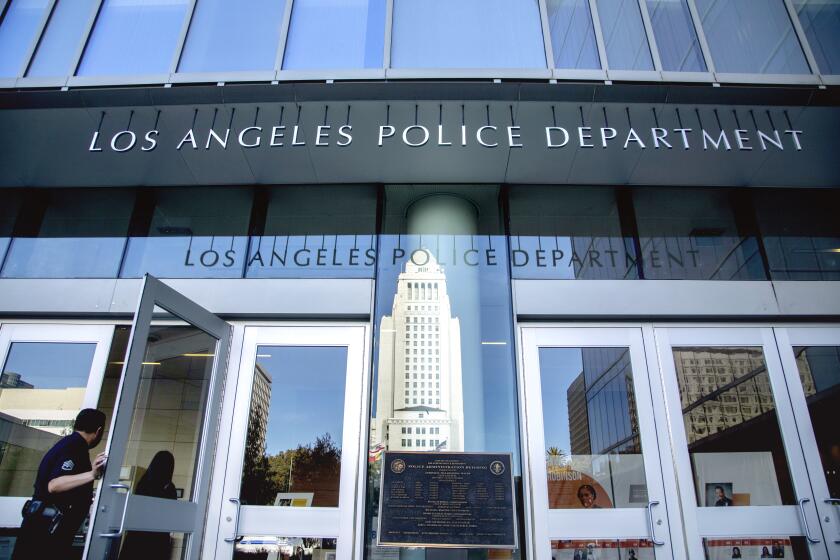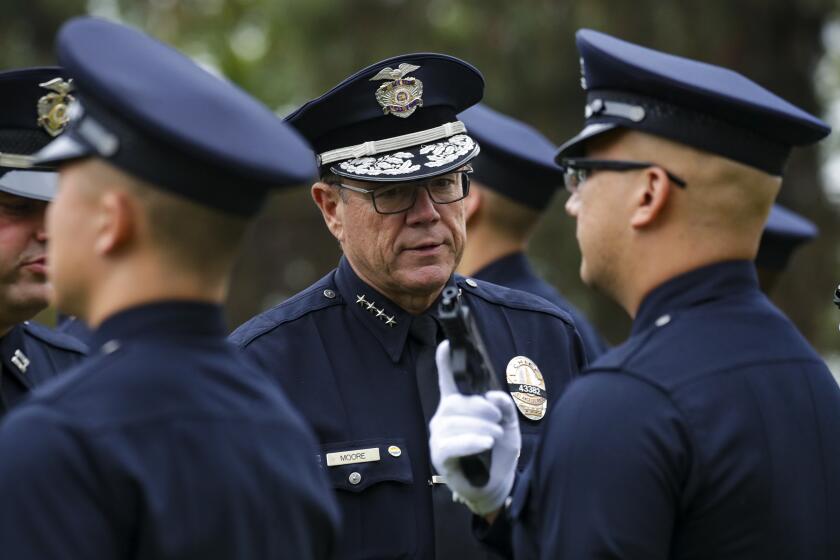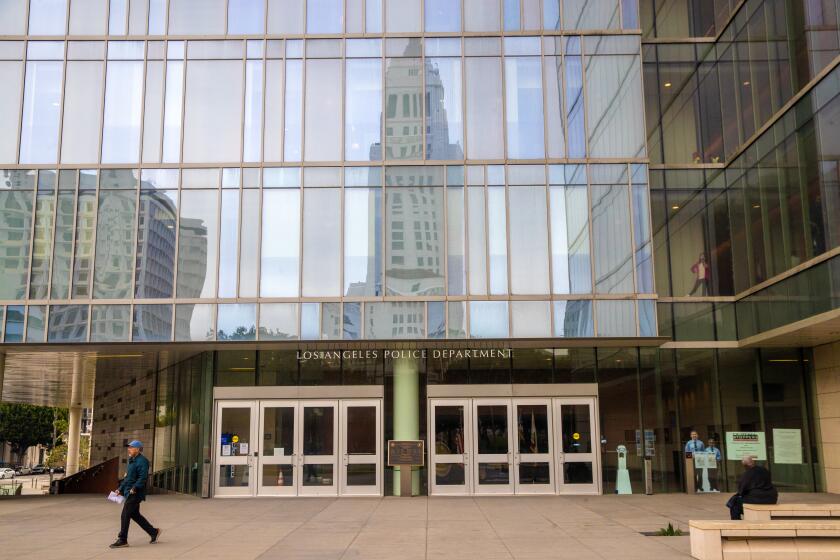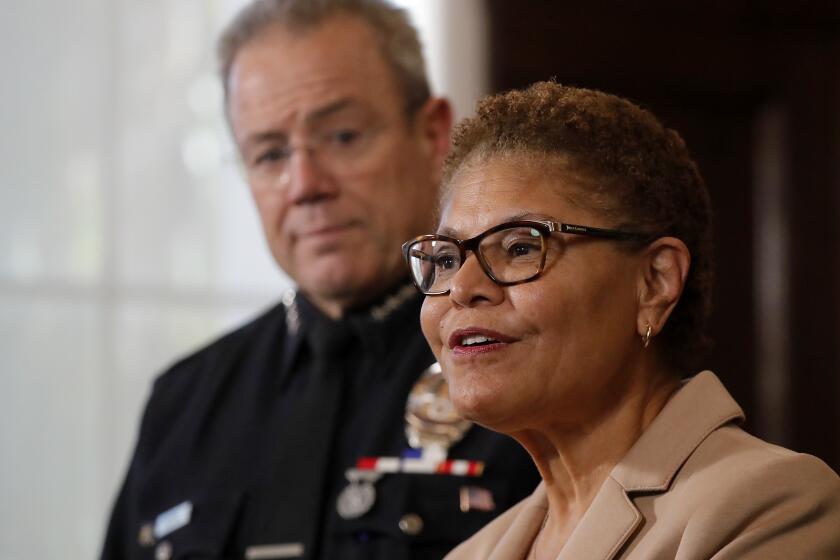Editorial: LAPD discipline ballot measure offers only minor reforms. City leaders must do more
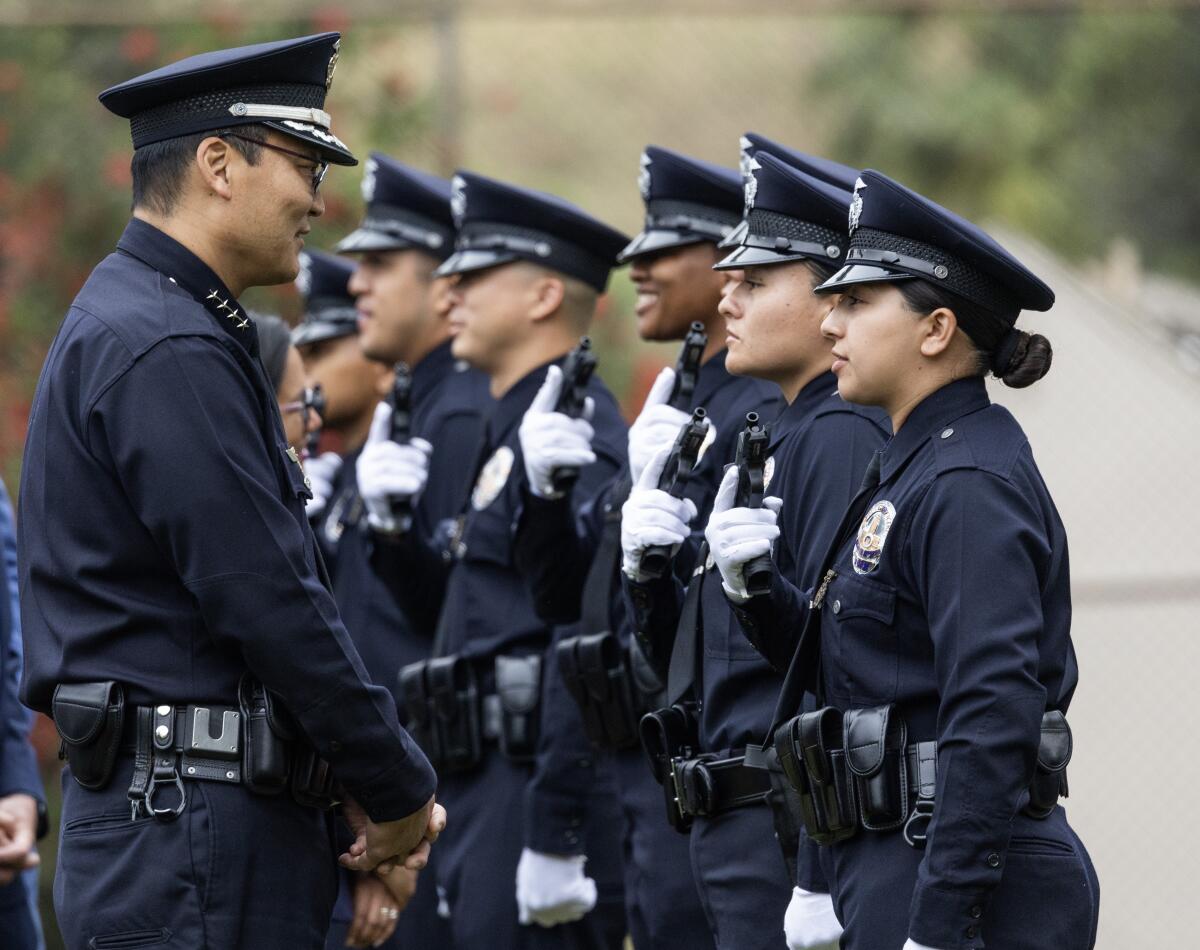
- Share via
This month, the Los Angeles City Council signed off on a plan to ask voters to approve changes to the discipline system for police officers accused of misconduct. It is underwhelming.
There are three main parts to the plan, which is being drafted into a ballot measure slated for the Nov. 5 general election. It would permit the police chief to fire officers found to have engaged in misconduct. It would rejigger the composition of the board of rights — a three-member appeals panel that has the power to override the police chief’s discipline decisions. And it would impose binding arbitration as a final level of appeal.
There is nothing particularly wrong with any of these changes, which collectively could be a half-step forward for police accountability. But they fall far short of what’s needed, and what the City Council has been promising the public for at least seven years: a sweeping reexamination and overhaul of police practices and policy, including the discipline system.
Even in seemingly clear-cut cases of serious misconduct, the LAPD’s disciplinary system has led to outcomes in which those involved keep their jobs and continue collecting paychecks. Now, some leaders are renewing calls for a radical overhaul.
Let’s remember how we got here. In 2017, under the guise of toughening the police discipline system, city leaders hoodwinked voters into weakening it.
Their vehicle was a charter amendment that allowed officers to opt for a disciplinary appeals panel made up of only carefully selected civilian members, with no members from police command staff. Although oversight by members of the public sounds good, the civilians who are picked to serve on the boards tend to be too lenient with discipline, even after finding that officers committed egregious and shocking misconduct.
LAPD Chief Michel Moore, who retired in February, and Chief Dominic Choi, his interim successor, ended up being stuck with dozens of unfit or unreliable officers whom they could neither discharge nor deploy. They often are assigned desk jobs that are more suitable for less costly civilian employees.
The LAPD chief said Friday afternoon that he will step down next month. This is the right move, and gives the mayor an opportunity to reshape public safety in Los Angeles
Charter Amendment C, as it was called, was a gift to the police union, which bankrolls the reelection campaigns of many city officials.
Responding to criticism over its trickery, the council at the time promised an intensive review of every LAPD process and procedure. But it never delivered. It probably never intended to.
Now is the right time for current city leaders to deliver the promised accountability. The department is in the midst of a once-in-a-generation transformation. Mayor Karen Bass will soon select a new police chief, and other top police positions are due to be filled as well. Many officers had not yet been born when Rodney King was beaten in 1991 or Rafael Perez was arrested in 1998. A new LAPD culture is emerging, with little memory of past crises.
For a needed change in the Los Angeles Police Department’s failing discipline system to come before voters this year, the City Council must move faster.
The police disciplinary process should be examined in the context of other LAPD policies and standards that should be up for review. City leaders should consider whether the board of rights process has outlived its purpose, and if there are better ways to balance officer accountability and due process. They should also seek changes to state laws that require police discipline proceedings to be closed to the public. L.A. residents deserve to be better informed about the types of misconduct of which officers are accused, and the discipline they receive.
If we are going to keep boards of rights, the council should broaden the composition of the pool from which civilians are selected to ensure they are more representative of the general public — more like jurors than attorneys. It can limit the board’s role to fact-finding, which would curb the board’s ability to overrule the chief’s discipline decisions.
In her first few months as mayor, it seemed as if Karen Bass were a bystander when it came to the LAPD. But her actions and comments since show that she was in charge all along and deftly putting pieces in place for a change in leadership.
The public wants police officers to do their jobs with skill and integrity, and be held accountable when they misbehave. They expect their city government to attend to the details.
But because police discipline is in the city charter, voters must approve changes, such as how many civilians should be on boards and what standards they should use when deciding whether to uphold the chief’s recommended discipline. It can be a frustrating exercise, especially because charter amendments often appear to effect more change than they do.
Voters will be called on to approve these relatively minor adjustments to police discipline in November. But city leaders should think bigger.
More to Read
A cure for the common opinion
Get thought-provoking perspectives with our weekly newsletter.
You may occasionally receive promotional content from the Los Angeles Times.
